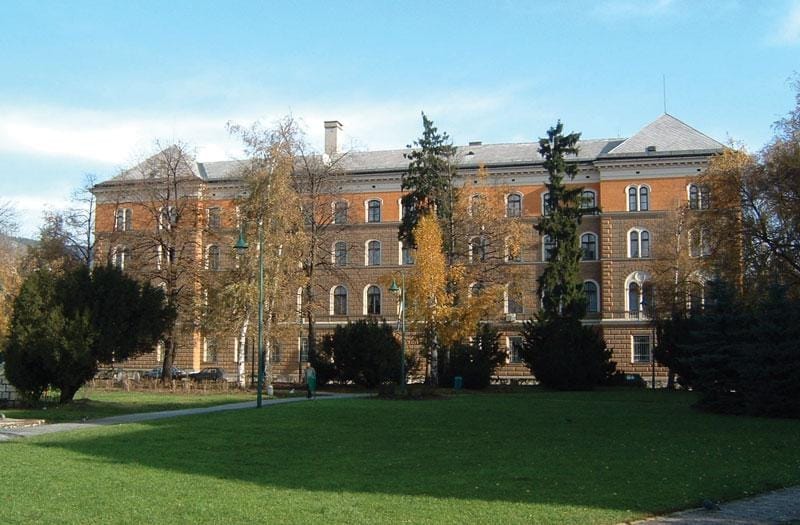The Constitutional Court of Bosnia and Herzegovina (BiH) will rule on Article 13 of the Law on the Court of BiH during its plenary session scheduled for March 27 and March 28, 2009. The article, among other things, stipulates that the Court of BiH has the power to decide on any conflict of jurisdiction between the lower courts in the entities and the Brčko District.
Milorad Živković, deputy president of the BiH Parliament’s House of Representatives, asked the Constitutional Court of BiH to look into the constitutionality of the Court of BiH’s jurisdictions as outlined in Article 13.
In his August 2008 appeal, Živković said that the main problem with Article 13 was that it grants jurisdiction to the Court of BiH over entity courts and that this is a case of ‘a backdoor transfer of jurisdictions’ from the entities to the state.
This appeal is in line with the agenda of the Party of Independent Social Democrats (SNSD), of which Živković is a member. SNSD champions stronger entities and the weakening of the powers and jurisdiction of the state.
If the Constitutional Court of BiH rules the disputed article is unconstitutional, the Court’s operations would come under serious threat, especially those of the War Crimes Chamber, say Court of BiH officials. Such a ruling would also render impossible the National Strategy for the Processing of War Crimes Cases that was adopted by the BiH Council of Ministers at the end of 2008 at the initiative of the BiH Ministry of Justice.
Details of the State Strategy

Of the 159 persons currently indicted of war crimes, 103 were indicted before the Court of BiH, according to the national strategy. Currently, 5,895 persons in BiH are listed as suspects in war crime cases.
The national strategy aims to hear some 1,285 cases that are currently under investigation in the next 15 years, and to resolve the most difficult and pressing of those in the next seven.
That same strategy also attempts to serve as an equalizer among various courts, giving the key role to the Court of BiH. Until now, different courts have used different legislation in their rulings on war crime cases.
When prosecuting war crime cases, entity courts generally use the more lenient Criminal Code of the Socialist Federal Republic of Yugoslavia. Under that code, anyone found guilty can be sentenced to a maximum of 20 years. The code also allowed a death sentence for severe crimes, but this punishment was terminated when BiH adopted the Convention for the Protection of Human Rights and Fundamental Freedoms.
The Court of BiH, however, has used the Criminal Code of BiH in 29 of its final and binding rulings on war crime cases. According to the BiH code, the maximum sentence for war crimes and crimes against humanity is 45 years in prison.
On an earlier occasion, the Constitutional Court of BiH ruled on a war crime hearing before the BiH courts when it looked into the merits of the appeal of Abduladhim Maktouf. The Court of BiH has sentenced Maktouf to five years in prison for his role in being an accessory to a war crime against civilians.
In the March 2007 decision, the Constitutional Court found that the entity courts, when ruling on a war crime case, must apply the Criminal Code of BiH and must follow the Court of BiH law practice – it being the state court – or would be in violation of the principles of fairness and rule of law.
‘Removing the Court of BiH when we don’t have a state supreme court would be very damaging and contrary to the basic democratic principle of equality of all citizens before the law’ a former judge of the BiH Constitutional Court, Ćazim Sadiković, said.
If the court accepts his thinking, it would throw out Živković’s appeal, which is what Jusuf Halilagić, the secretary of BiH Ministry of Justice, predicts.
A Possible Broadening of Article 13
‘I don’t believe the Constitutional Court will pass something like this’ Halilagić said, explaining that the BiH Council of Ministers has adopted a proposal to broaden Article 13 to encourage cooperation and equalization of court practice of BiH courts under the Court of BiH. The BiH Parliament will soon vote on a draft of the amendments.
In developing the proposal, the task force involved in this effort consulted a number of experts on constitutional law, while Judge Miodrag Simović of the Constitutional Court of BiH provided legal guidance.
Živković’s proposal, which is the grounds for the appeal, was not backed by the BiH Parliament’s Committee on Constitutional and Judicial Issues when it came up on the commission’s agenda in late January at the request of the Constitutional Court.
The Constitutional Court has also asked the Office of the High Representative (OHR) and the Organization for Security and Cooperation in Europe (OSCE) for their opinions as amicus curiae- or ‘friends of the court.’
The Constitutional Court’s president Seada Palavrić and representatives from the OHR and the OSCE have declined public comment on this issue. The OHR itself first mandated the Law on the Court of BiH.
The Court of BiH is the only court in the country that has not been established by the BiH Constitution or through the Dayton Agreement. Instead, it came into being through a law mandated by the High Representative, a law later enacted by the BiH Parliament.







